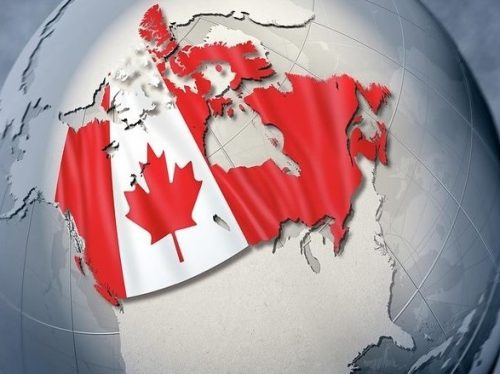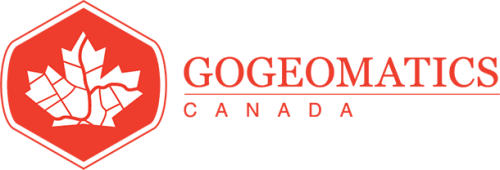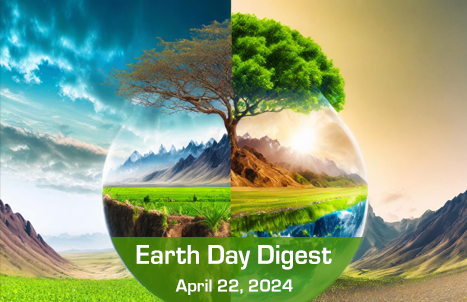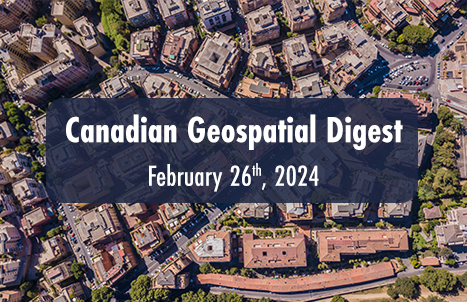Diversity in Leadership: GoGeomatics Interviews NRCan’s Carla Jack
Diversity enhances more than just innovation and creativity.
To show the importance of diversity, GoGeomatics has created a series highlighting diversity leadership in the Canadian Geomatics community. GoGeomatics was able to interview Carla Jack of NRCAN as part of the Diversity in Leadership series.
GoGeomatics: Where did you grow up and where do you live now?
Carla Jack: I am Penelakut on my late father’s side and Irish-Swiss on my mother’s. I grew up on Vancouver Island and now live in Lekwungen Peoples’ territory just outside of Victoria, B.C.
GoGeomatics: How did you choose to study linguistics and why was it important to you?
Carla Jack: After two years as a science student, I took a year off to work and travel. During that time I realized how important language is to understanding different cultures and world views. So I changed my focus to the scientific study of languages, which is endlessly fascinating and increasingly important as so much work is happening in communities to revitalize Indigenous languages (alongside documenting and ensuring intergenerational transmission of cultural heritage.
GoGeomatics: As both a person passionate about languages, mapping, and communicating heritage values, and a member of the Penelakut Tribe living in Lekwungen Peoples territory, how have these two things enhanced your approach to your work?
Carla Jack: Being a toponymist is a unique job with a broad range of knowledge areas, requirements, and responsibilities that bring together so many different disciplines. Place names touch on all parts of our lives and connect culture and land (intangible and tangible). They are the visual interface between people and maps – making maps understandable and usable. So understanding place names requires we think in many different terms such as language, mapping, multiple layers of history on the land, heritage values, etc. I take great pleasure in also bringing my worldview /lens as an Indigenous person to all parts of this work.
GoGeomatics: How did you first become interested in toponymy as a career?
Carla Jack: By meeting the provincial toponymist (at the time) in B.C. and learning that there was such a thing as a career in toponymy. After she announced her intention to retire, I did a formal job shadow to learn more about the role. That’s where I realized it brought together all of my passion areas and previous work experiences.
GoGeomatics: With 12 years in the BC public service, why did you decide to move over to the federal government?
Carla Jack: The broader national scope of the federal public service appealed to me, as well as working with international groups.
GoGeomatics: What does a Senior Toponymist do on a day-to-day basis?
Carla Jack: A lot of writing, briefing, reviewing, reporting, providing advice, and talking about place names and toponymic data.
GoGeomatics: How big is your team and what types of activities do they undertake?
Carla Jack: The team of eight is responsible for managing the Canadian Geographical Names Database (CGNDB – the official place names in Canada), coordinating the work of the Geographical Names Board of Canada, providing the board Secretariat, maintaining the GNBC archives, creating the interactive maps and other products, representing Canadian toponymy at the international level (e.g. UNGEGN)… I’m sure I’m not fully capturing everything here…
GoGeomatics: What languages do you speak, and how has that helped in your job?
Carla Jack: I am fluent only in English but have some French, a bit of Spanish, German, Russian, and a tiny bit of Hul’q’umi’num, Cree, and Korean (java and SQL are in the ‘tiny bit’ category too– ha). I’ve been very fortunate in my career to learn about places and place names in many different Indigenous languages in Canada, and especially throughout B.C. The information (descriptive, educational, protocol, teachings, etc.) contained within place names is fascinating and I’m forever grateful to the communities who are sharing place names publicly.
GoGeomatics: Why do you consider your job important?

Photo courtesy: fineartamerica.com
Carla Jack: In my job, I get to help people understand the wealth of knowledge held in place names, the rigorous process of place naming (changing place names can impact emergency response such as search and rescue) and sharing Canada’s toponymic work with the international groups (e.g., UNGEGN). Working with FPTs in order to coordinate their official names – the place names that are shown on government maps – for the CGNDB in both official languages (where appropriate), talking about data standards and character encoding, ensuring consistent data replication of names in multiple Indigenous languages are all important aspects of the work.
Place names are part of our everyday lives, our identities, our reference points, how we navigate, and because of that are fundamental to mapping. They’re the most widely used access point to other geospatial data (e.g., search functions) and they reflect Canada’s history and cultural heritage values through time. Indigenous peoples have always named the lands and waters of what we now call Canada, however many of the original names for places were effectively erased through the assignment of English and French place names instead. Today, members of the GNBC are working directly with Indigenous communities to restore Indigenous place names to government maps. This is very important work. Learning and using Indigenous place names helps all Canadians better understand the deep histories of where they live.
GoGeomatics: Can you share some examples of your work that you feel are interesting?
Carla Jack: NRCan and the GNBC have published three interactive maps that showcase a selection of place names in Canada in different themes.
- Canada’s Commemorative Map
- Stories from the land: Indigenous Place Names in Canada
- Recognizing Women with Canadian Place Names
GoGeomatics: Are you working from home or going into the office?
Carla Jack: I am working from home.
GoGeomatics: You work with the UN group of experts on geographical names. What work is involved? Do countries take care of their own toponymy?
Carla Jack: The UN Group of Experts on Geographical Names (UNGEGN) brings together place naming representatives from Member States and provides an active forum for naming policy and procedures, best practices discussions, data dissemination, recognizing and promoting the value of geographical names to culture and heritage, etc. Canada is leading the focus group on Indigenous geographical names (which I plan to get started on this fall).
GoGeomatics: What challenges did you face to get to where you are now and how did you overcome those challenges?
Carla Jack: Being an Indigenous public servant is not always easy since it is working in a system that has done such great harm and is slow to change. For me (as for many others), it’s a very deliberate choice motivated by my personal drive to effect positive change in any way that I can. Helping people learn about the importance of place names and place naming is a great part of the job as a toponymist. It also means meeting people where they are in their learning journey about Canada’s history which can sometimes be pretty challenging.
GoGeomatics: Can you explain the importance of diversity leadership in organizations like CCMEO/NRCAN? How does this affect you?
Carla Jack: Diversity leadership makes organizations healthier and more resilient. When I see diversity in leadership, I see what the values of that organization are.
GoGeomatics: For those interested in creating a career with CCMEO/NRCAN, what advice can you give?
Carla Jack: Topic-wise, there is something for everyone at CCMEO/NRCan and a huge amount of important work is happening here.
GoGeomatics wishes to extend a deep, heartfelt thank-you to Carla Jack for her time and insight.







